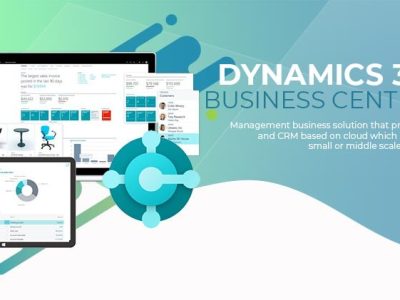Choosing the right ERP (Enterprise Resource Planning) system for your business is a critical decision that can significantly impact your operations, efficiency, and growth. With numerous options available, such as ERP for manufacturing, Microsoft Dynamics 365, and various ERP implementation services, making the right choice requires careful consideration. In this blog, we will guide you through the essential factors to consider when selecting the best ERP software for your business.
1. Understand Your Business Needs
Before you start evaluating ERP systems, it’s crucial to understand your business requirements. Identify the specific needs of your organization, such as:
- Operational Challenges: What problems are you trying to solve with an ERP system?
- Industry Requirements: Does your industry have unique requirements? For example, ERP for manufacturing will have different needs compared to retail or healthcare.
- Scalability: How will the ERP system support your business as it grows?
2. Key Features to Look For
Not all ERP systems are created equal. Here are some key features you should look for:
- Integration Capabilities: Ensure the ERP software can integrate with your existing systems, such as CRM, e-commerce, and accounting software.
- Customization: The ability to customize the ERP system to fit your specific business processes.
- User-Friendly Interface: An intuitive and easy-to-use interface to ensure user adoption.
- Mobile Access: The ability to access the ERP system from mobile devices for on-the-go management.
3. Consider ERP for Manufacturing
If you are in the manufacturing industry, look for an ERP system specifically designed for manufacturing. ERP for manufacturing includes features such as:
- Inventory Management: Track inventory levels in real-time.
- Production Planning: Optimize production schedules and resource allocation.
- Quality Control: Ensure product quality meets industry standards.
4. Evaluate ERP Software Providers
Research different ERP software providers and evaluate their offerings. Consider the following:
- Reputation: Look for providers with a strong track record and positive customer reviews.
- Support and Training: Ensure they offer robust support and training services to help you get the most out of the ERP system.
- Cost: Compare pricing models and consider the total cost of ownership, including implementation, customization, and ongoing maintenance.
5. Explore Microsoft Dynamics 365
Microsoft Dynamics 365 is a popular ERP solution known for its flexibility and comprehensive features. It integrates seamlessly with other Microsoft products, such as Office 365 and Power BI, providing a unified platform for managing your business operations. Key benefits of Microsoft Dynamics 365 include:
- Scalability: Suitable for businesses of all sizes.
- Customizability: Tailor the system to meet your unique business needs.
- Advanced Analytics: Leverage Power BI for deep insights and data visualization.
6. Leverage ERP Implementation Services
ERP implementation can be complex, so partnering with a provider that offers ERP implementation services can be beneficial. These services typically include:
- Consultation: Assessing your business needs and recommending the best ERP solution.
- Customization: Configuring the ERP system to fit your specific requirements.
- Training: Providing training for your team to ensure successful adoption.
- Support: Offering ongoing support and maintenance to keep your system running smoothly.
Conclusion
Choosing the right ERP system for your business involves understanding your needs, evaluating key features, and researching providers. Whether you are considering ERP for manufacturing, Microsoft Dynamics 365, or other ERP software, making an informed decision is crucial. By leveraging ERP implementation services, you can ensure a smooth transition and maximize the benefits of your new ERP system.
Ready to transform your business operations with the right ERP system? Start by assessing your needs and exploring the best options available in the market.







